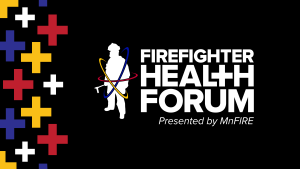Contributed by MnFIRE Mental Health Director Melinda Coscarelli, PhD, LPCC, LADC
Summer is a popular time for outdoor gatherings and celebrations with friends and family. So many of these social events, parties and get-togethers will have alcoholic beverages at the ready. Let’s face it: we live in a culture that likes to drink! But how do we know where or when to draw the line? What is considered to be within healthy limits of alcohol consumption and what is abusive or unhealthy drinking behavior?
What is a healthy limit?
The key to enjoying alcoholic beverages within a healthy limit is moderation. Research shows that men who drink eight or more alcoholic beverages weekly could experience internal medical issues such as elevated liver levels, kidney damage, inflammation of the pancreas and several stomach problems, among other ailments. Women typically have slower metabolisms than men so they don’t require as much alcohol to have the same harmful health effects. For women, weekly consumption of six to eight alcoholic beverages can elicit the same medical concerns.
Use within the fire service
A recent study measuring firefighting drinking habits showed over 50% of firefighters abusing alcohol. Firefighters reported using alcohol as a means of taking the edge off, escaping, coping and self-medicating. Some reported being physically dependent and unable to stop.
Do I abuse alcohol?
As an addiction specialist who has worked with firefighters for several years, I have seen several times how alcohol has ruined firefighters’ lives, careers and families all in an instant. Here are a couple of quick questions you can ask yourself to see if you might have an issue:
- Have you felt the need to cut down on your drinking?
- Do you feel annoyed by people complaining about your drinking?
- Do you ever feel guilty about your drinking?
- Do you ever drink an eye-opener in the morning to relieve the shakes?
If you answered “yes” to any of these questions or know someone who needs help with alcohol or substance abuse, please call our 24-hour helpline at 888-784-6634. Free counseling visits, peer support and other resources are available through the MnFIRE Assistance Program. This confidential, free service is available for all active volunteer, paid-on-call, part-time and full-time Minnesota firefighters and their families, and for all levels of support.








